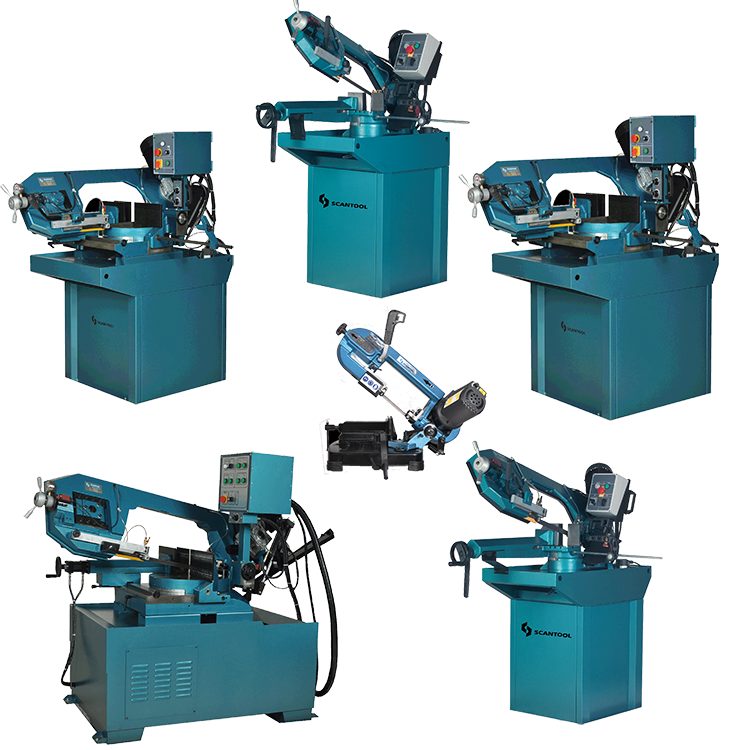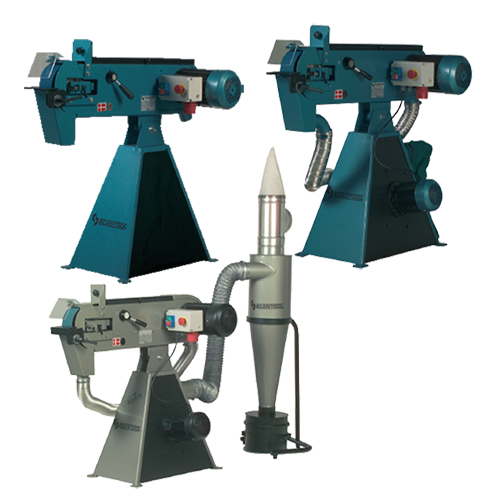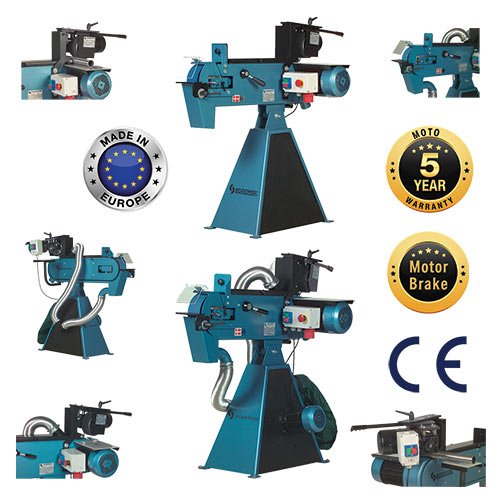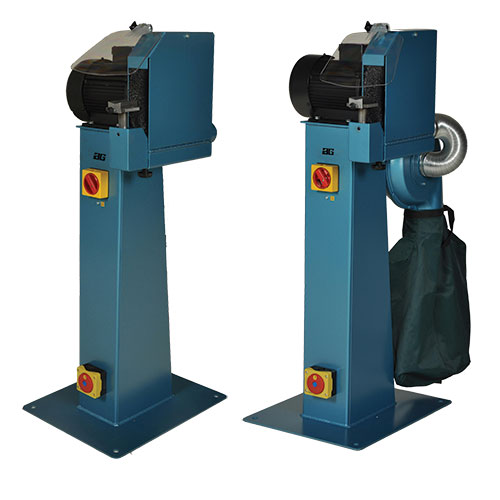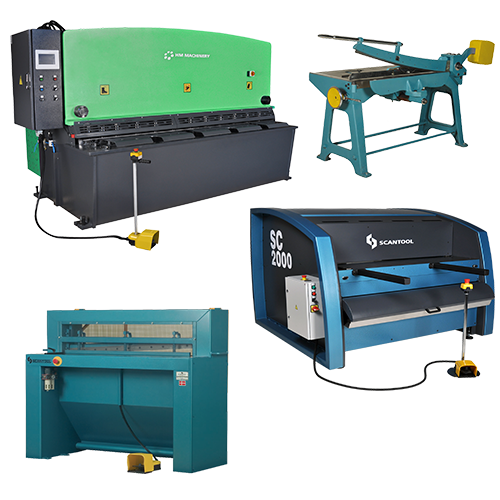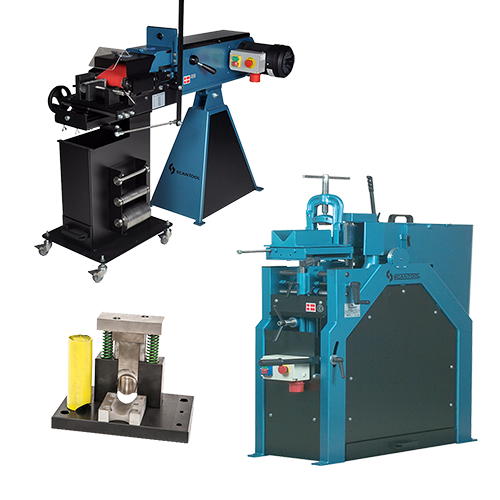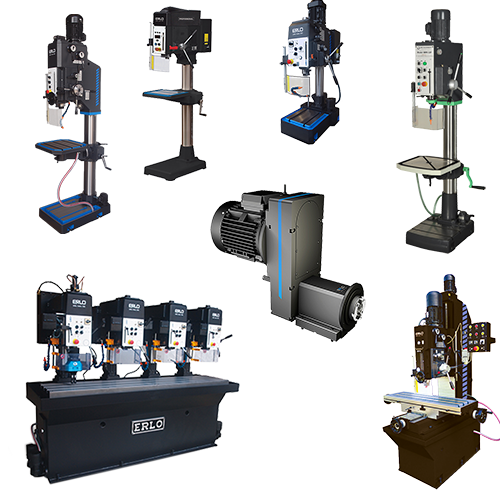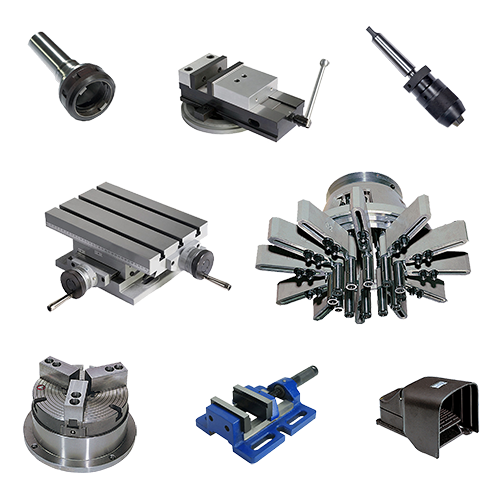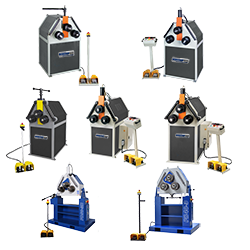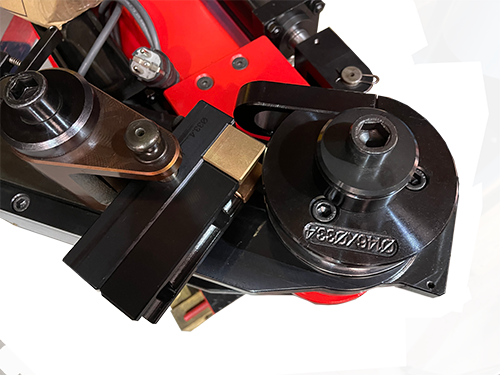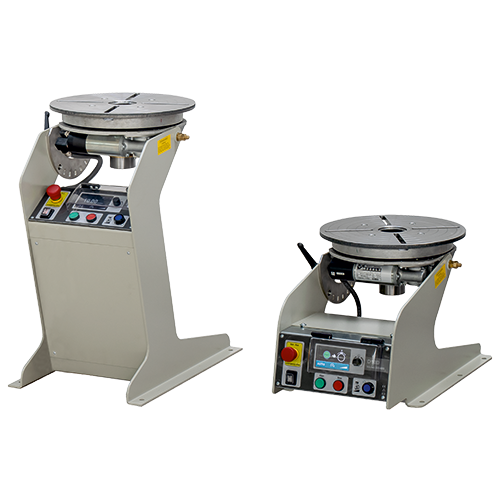Choosing between a portable and stationary bandsaw can be challenging, as each offers unique benefits for metalworking projects. The best choice depends on your specific needs, including the type of work, required precision, and workspace constraints. In this guide, we’ll compare portable and stationary bandsaws, examining their advantages, limitations, and ideal uses to help you decide which model is best for your metalworking setup.
Understanding the Differences Between Portable and Stationary Bandsaws
Before exploring their individual benefits, it’s important to understand the core differences between portable and stationary bandsaws.
- Portable Bandsaws: Compact and lightweight, portable bandsaws are designed for mobility and are ideal for on-site work or projects where flexibility is essential. They’re typically handheld, which makes them suitable for cutting smaller or irregularly shaped materials.
- Stationary Bandsaws: Fixed in one place, stationary bandsaws are mounted on a stand or built into a workstation. These bandsaws are usually larger, with more power and capacity, making them better suited for larger, repetitive cuts and projects that require precision.
Both types are valuable in metalworking, but choosing the right bandsaw type depends on the specific needs and constraints of your workshop.
Advantages of Portable Bandsaws
Portable bandsaws offer unique advantages that make them ideal for certain types of metalworking tasks.
1. Portability and Flexibility
One of the primary benefits of a portable bandsaw is its mobility. With a lightweight, handheld design, portable bandsaws allow you to move freely and complete tasks that may be difficult with a stationary tool.
- On-Site Use: Perfect for fieldwork, portable bandsaws can be taken to various locations, ideal for metalworking professionals who work across different sites.
- Easy to Store: Their compact design makes them easy to store when not in use, which is helpful in smaller workshops or for users with limited space.
Portable bandsaw benefits like flexibility and convenience make them the preferred choice for mobile metalworking tasks.
2. Versatility for Small and Irregular Cuts
Portable bandsaws excel in handling small, detailed, or irregular cuts, especially for materials that are difficult to manipulate on a stationary machine.
- Cutting Unusual Shapes: Portable bandsaws allow for easy manoeuvring around curved or irregular materials, making them suitable for custom metalwork and intricate projects.
- Multiple Materials: These saws can cut through various materials, including pipes, tubes, and smaller metal pieces, providing versatility for different metalworking tasks.
This versatility makes portable bandsaws especially useful for projects that require precision on smaller or more complex shapes.
3. Affordable and Low Maintenance
Generally, portable bandsaws are more affordable than stationary models. Additionally, their design requires less maintenance, making them cost-effective for hobbyists or professionals on a budget.
- Lower Initial Investment: Portable bandsaws are typically less expensive, making them accessible for those just starting or needing a second saw.
- Minimal Upkeep: With fewer components and simpler designs, portable bandsaws require less frequent maintenance than larger stationary models.
Choosing a portable bandsaw can be a cost-effective option, particularly for users who don’t require the power or capacity of a stationary model.
Limitations of Portable Bandsaws
While portable bandsaws offer many benefits, they have some limitations that may make them less suitable for certain metalworking projects.
- Limited Cutting Capacity: Portable bandsaws are generally smaller, which restricts the size and thickness of materials they can handle.
- Less Precision: Since they are handheld, portable bandsaws can be harder to control with exact precision, especially on repetitive tasks.
These limitations mean portable bandsaws are best suited for smaller or flexible projects rather than high-precision, high-volume work.
Advantages of Stationary Bandsaws
Stationary bandsaws provide robust power, precision, and stability, making them ideal for workshops focused on larger projects or requiring repetitive cuts.
1. Greater Power and Cutting Capacity
Stationary bandsaws offer significantly more power than their portable counterparts, allowing them to cut through thicker and tougher materials with ease.
- Handling Heavy Materials: Stationary bandsaws are built for heavy-duty work, ideal for larger metalworking projects.
- Consistent Performance: Their powerful motors ensure reliable performance over long periods, making them suitable for continuous, high-volume work.
For metalworking projects that demand strength and resilience, stationary bandsaws are a top choice.
2. Enhanced Precision and Stability
One of the major benefits of stationary bandsaws is their ability to deliver precise cuts. The fixed position and solid build provide a stable base for accurate results.
- Precision for Repetitive Cuts: The stable setup of stationary bandsaws allows for repeatable cuts with minimal variation, ideal for workshops producing parts to specific measurements.
- Improved Control: A stationary machine allows for precise control over both angle and depth, essential for detailed and intricate cuts in metalworking.
For high-precision work, stationary bandsaws provide the stability and control necessary to achieve exact results.
3. Ideal for Large and Repetitive Projects
Stationary bandsaws are designed to handle larger projects that require repetitive cutting. They are perfect for workshops with high productivity demands.
- Suitable for Batch Work: Stationary bandsaws are efficient for cutting multiple pieces in one session, which is beneficial for businesses needing consistent output.
- Extended Tool Life: With durable construction, stationary bandsaws are designed for long-term use, offering a solid return on investment for commercial settings.
For workshops focused on large-scale metalworking projects, a stationary bandsaw is a wise investment that supports high productivity and consistent quality.
Limitations of Stationary Bandsaws
Despite their strengths, stationary bandsaws have a few limitations that may impact their suitability for some users.
- Less Portable: As stationary tools, they lack the flexibility of portable bandsaws, making them unsuitable for off-site or mobile work.
- Higher Initial Investment: Stationary bandsaws are generally more expensive and may require more frequent maintenance, making them a higher investment upfront.
These limitations mean stationary bandsaws are best suited for dedicated workshop spaces rather than versatile or mobile applications.
Choosing the Right Bandsaw Type for Your Workshop
The choice between a portable and stationary bandsaw depends on your specific needs, workshop setup, and types of metalworking projects.
Here’s a quick comparison to help guide your decision:
- Choose a Portable Bandsaw If:
– You need mobility for on-site or field projects.
– Your work involves small or irregular cuts.
– You have limited space in your workshop. - Choose a Stationary Bandsaw If:
– You need a powerful saw for large or thick materials.
– Your projects require high precision and repetitive cutting.
– You have a dedicated workspace for metalworking.
Understanding these distinctions ensures that you select the bandsaw that aligns best with your operational needs and budget.
FAQs About Portable and Stationary Bandsaws
Which is more cost-effective, a portable or stationary bandsaw?
Generally, portable bandsaws are more affordable and require less maintenance, making them a cost-effective choice for smaller projects. However, for long-term, heavy-duty work, a stationary bandsaw offers a better return on investment.
Can I use a portable bandsaw for precise cuts?
While portable bandsaws are versatile, they may not provide the same level of precision as stationary models. For projects that require exact cuts, a stationary bandsaw offers more stability and control.
Which bandsaw type is better for cutting thicker metals?
Stationary bandsaws are typically more powerful and can handle thicker materials more efficiently than portable models. They are ideal for workshops focused on larger metalworking projects.
Do stationary bandsaws require more maintenance than portable ones?
Yes, stationary bandsaws often have more components and are used for intensive tasks, which may lead to a higher need for maintenance. However, their durability makes them suitable for long-term use.
Can I use both types in one workshop?
Absolutely. Many workshops benefit from having both a portable and stationary bandsaw, as each serves different purposes and provides flexibility across various projects.
Conclusion: Choosing the Best Bandsaw for Your Metalworking Needs
Selecting between a portable and stationary bandsaw depends on your unique requirements, project scale, and workspace. Portable bandsaws offer mobility, flexibility, and cost savings, ideal for small or irregular cuts on-site. In contrast, stationary bandsaws provide greater power, precision, and efficiency for larger or repetitive tasks in dedicated workshop environments.
Assessing these factors will help you make the right decision, ensuring you invest in the bandsaw that best fits your metalworking projects.
For a range of high-quality bandsaws tailored to different needs,
Visit our Bandsaws page to explore the options available.


